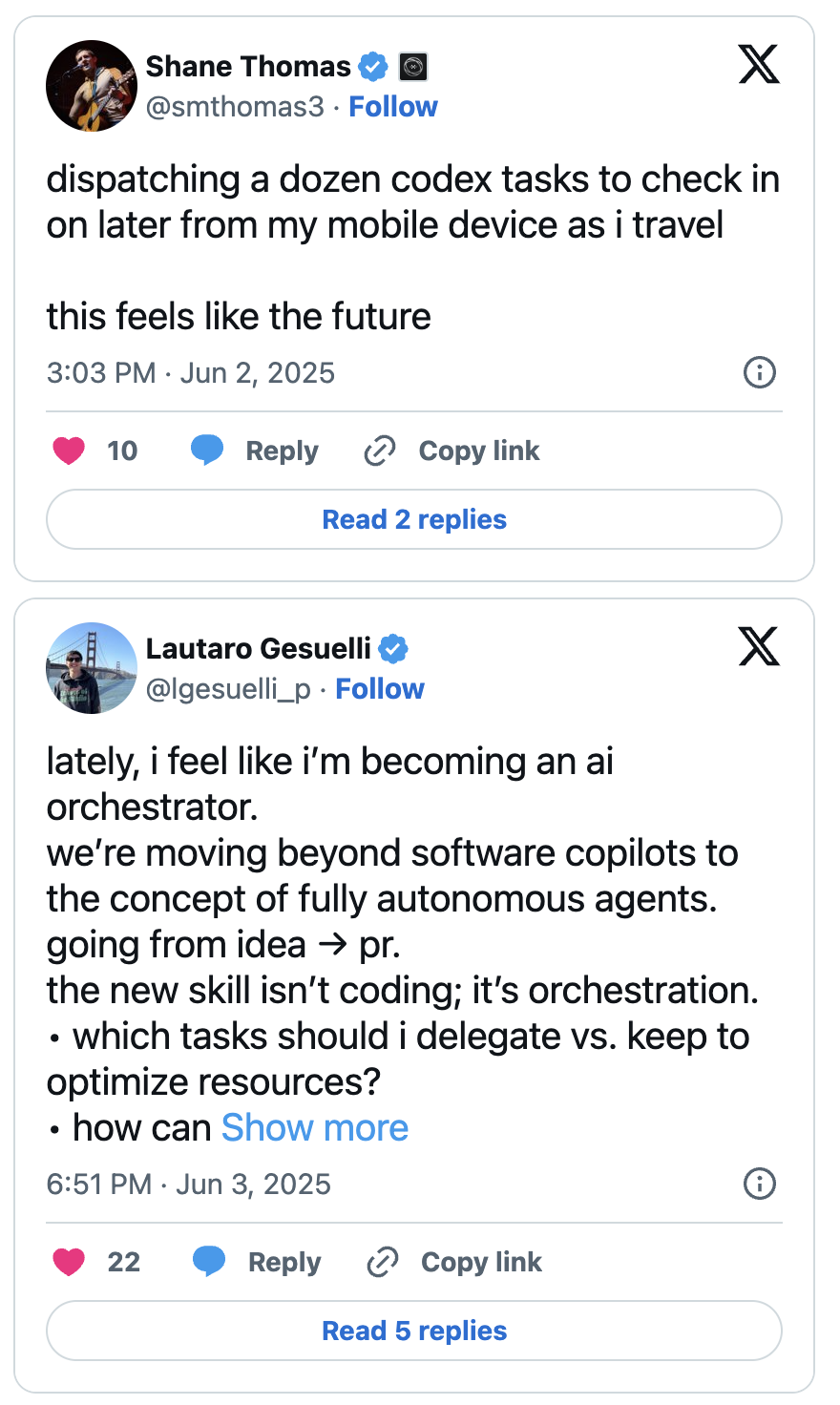AI Agents are gaining more breadth and depth within practitioners' daily use. Individual agents are getting more powerful with the rise of new models like Claude Opus 4 and AI coding agents such as Codex from OpenAI. Individuals are also starting to use and manage multiple agents at a time.
We are witnessing a whole new way to work that is quickly becoming the new normal. Everyone will eventually command a fleet of agents that they manage. However this brings up a lot of security concerns such as managing agent identities, scoping agents, and orchestrating them.
Identity management has been historically difficult for non-human identities. Agents exacerbate this because they are easy to spin up and hard for IT teams to have oversight over their identities. Agents can also assume new identities depending on the task at hand and who the user is that is requesting the task. New protocols like MCP, A2A, and others such as ACP from IBM may help or make identity management more difficult depending on how they have implemented authorization. The jury is still out on who has the best framework, but my bet is the one that helps with identity management and security will win out over the others.
Scoping agents is a particularly daunting task and requires users to understand the boundaries associated with the actions an agent will likely need to take. While developing agents and running groups of agents together for the first time, utilizing a sandbox may be beneficial to make sure agents are safely executing arbitrary code and behaving as expected. https://e2b.dev/ is an example sandbox (I haven’t tried it yet personally).
Agent orchestration is quickly becoming a popular way of working for developers who are using codex and claude code to use agents to code features all the way from idea to PR. Here’s how some folks in my network are using agent orchestration:

We are also seeing agent frameworks like Mastra release features that can help with agent orchestration. For example they recently released AgentNetwork, which uses an LLM to route tasks to different agents and allows agents to collaborate together.
It’s clear the future of work is here. Using multiple agents to solve tasks for you will be a new normal. We are seeing this already with powerful coding agents taking something from an idea all the way to a PR and with the concept of agent networks developing. Everyone is now a manager and every IC is now a 10x engineer. By taking security into consideration we can enable this transformative shift and focus on more meaningful work.